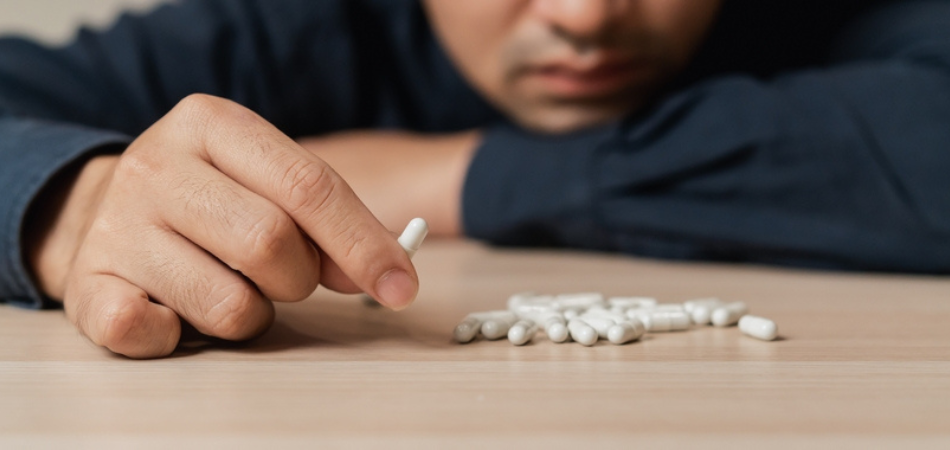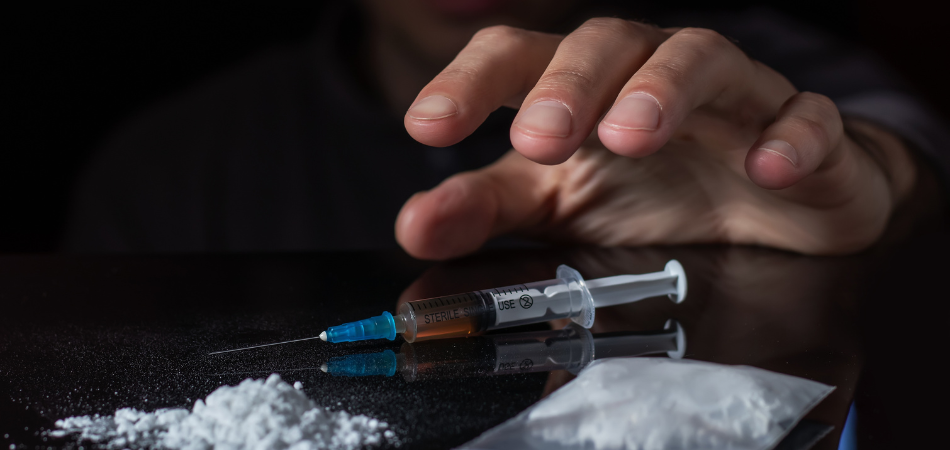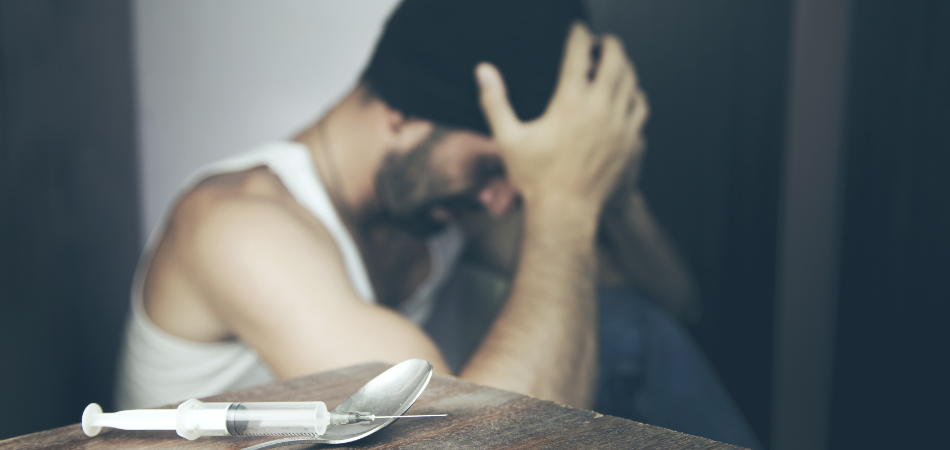The term ‘rebound’ suggests a kind of consequence – a kind of return to a person, place or thing that had previously been avoided or left. Rebounds can happen in all areas of life – including in addiction. For many people, addiction recovery is quite a process. Recovering from addiction is not linear – it’s not a mountain, but rather a range of hills to climb one after the other. During treatment, there will be a series of ups and downs. Sometimes, those downs come in the form of a rebound. But what does a rebound effect look like during addiction? Is there a difference between rebound and relapse?
What is the rebound effect?
In psychology more generally, the rebound effect happens following deliberate thought suppression. That is, when we avoid and suppress difficult feelings, they are likely to appear in the future, often in a more intense way. However, a rebound effect can take hold in many ways, including during addiction recovery. Rebound effects do not always happen after suppression – they can be a result of a range of factors. A rebound is a kind of return – and that can lead to a spiralling of emotions and difficulties during rehab.
The link between round effect and addiction
We can think of the rebound effect of happening in two key ways:
- A return of difficult symptoms
- The development of new symptoms
Returning symptoms
When we are struggling with our mental health, we can experience a lot of very difficult symptoms. This discomfort can come in may forms, such as:
- High levels of anxiety
- Periods of depression
- Feeling agitated
- Being aggressive or quick to anger
- Social withdrawal
- Difficulty sleeping
- Changes in appetite
- Difficulty managing responsibilities
- Financial issues
As we pay attention to our mental health, slow down, and take the time we need to assess and take stock of our thoughts and feelings, these symptoms begin to abate. During rehab, you will have the opportunity to address difficult situations and learn new ways of managing them. You will have support in the form of psychological intervention, structured days and supported routine. You may have the opportunity to engage with group therapies and support groups and may even take advantage of supplementary health and lifestyle changes, such as altering your diet, self-care and exercise regimens. All of these shifts can leave you feeling like a different person. It is common for individuals to start to feel more in control again and to feel more positive.
However, there may be times when the feelings of distress and discomfort that we experienced before begin to rear their head. This can happen for a variety of reasons, and it is a very natural response to the peaks and troughs of everyday life.
When we start to struggle – and no longer have the option of drinking, using drugs or engaging in addictive behaviours – the difficult symptoms can sometimes return. This can lead to us feeling vulnerable, as the coping strategies we implemented in the past are now something that we know we should be avoiding. If we are in rehab for heroin, for example, and start to feel very depressed, how are we supposed to cope without returning to opioids for support? This can be very difficult to process and leave us feeling, at times, hopeless and confused.
Rebound syndrome and new symptoms
This process is known colloquially as ‘rebound syndrome.’ Rebound syndrome happens when we are dependent on a substance and find ourselves struggling in its absence. This typically happens in the early stages of recovery – for example, during detox – when the dependency on drugs is initially being challenged. However, the rebound effect can happen at a variety of stages during the process of addiction recovery.
Rebound syndrome is thought to occur due to changes in the central nervous system in the absence of substances. When we use specific drugs, our brains will begin to change, adapt and shift as a result of the substances. This can act to reinforce drug use, but it can also act to aid some of the difficult symptoms we experience for the duration of drug use. This is a kind of ‘masking’ for the underlying difficulties we may be dealing with. When we detox, and our body adjusts to the absence of substances, we no longer have the ability to mask these symptoms. This can leave us feeling dazed, vulnerable and raw. We can feel uncomfortably open to discomfort and unaware of how to shield ourselves.
When we stop using a drug (known as ‘cessation’), our body has to learn how to manage in its absence suddenly. This means that we can experience a range of physical and psychological symptoms when initially functioning without a drug.
Rebound effect on different drugs
Rebound effect can look different for different people – it all depends on you as an individual, as well as the drug you have previously been using. For example, suppose you have been struggling with mania but have been misusing an antipsychotic. In that case, you may find that cessation of use leads to the rebound effect of returning manic episodes.
Each type of drug is typically associated with its own rebound effects, almost as a type of withdrawal symptom. It is helpful to be aware of the rebound effect associated with your addictive substance ahead of time. That way, you can be as prepared as possible and ready yourself for any physical or psychological discomfort as best you can.
Opioids (such as heroin) can be linked to:
- Difficulty managing pain
- Upset stomach
- Feeling agitated or struggling to stay still
- Low mood
Stimulant drugs (such as cocaine) can lead to:
- Depression
- Psychosis
- Panic attacks
Antidepressant medications also lead to:
- Anxiety
- Low mood
- Difficulty sleeping
Specific analgesics can lead to an increase in pain.
Our bodies become creatures of habit and learn to adapt to specific situations. This means that for some time, rebound effects can happen as a result of drug cessation. However, this does not mean that the best way to treat these effects is by continuing drug use. Where possible, it is important to delay drug use – or avoid it entirely – even when rebound effects feel uncomfortable. This is because returning to addictive substances can be very risky at this stage of recovery.
Rebound effect and relapse
In some situations, this process of rebounding can be a recipe for relapse. When exposed to distress and struggling with the pressure of attaining recovery, the rebound effect can sometimes be too difficult to manage. This leads, in some cases, to relapse as a way of coping. Of course, resisting this where possible can be beneficial for long-term sobriety. However, this can sometimes feel difficult to achieve without appropriate support. If you are currently dealing with an addiction, the best way to prepare for a rebound effect is to seek specialist support. With a team of clinicians on your side, you have increased access to tools to manage rebound symptoms. By concentrating on supporting your physical and mental comfort as much as possible, you increase your chances of safely overcoming the rebound effect.
(Click here to see works cited)
- https://www.ncbi.nlm.nih.gov/pmc/articles/PMC1483905/
- https://bmcpsychiatry.biomedcentral.com/articles/10.1186/s12888-023-04927-1
- https://www.ncbi.nlm.nih.gov/books/NBK230395/
- https://watermark.silverchair.com/fcz025.pdf?token=AQECAHi208BE49Ooan9kkhW_Ercy7Dm3ZL_9Cf3qfKAc485ysgAAA1wwggNYBgkqhkiG9w0BBwagggNJMIIDRQIBADCCAz4GCSqGSIb3DQEHATAeBglghkgBZQMEAS4wEQQMGY63gCt6xUC1-UwaAgEQgIIDD6XYtRSvrcDc1Umc_qNbkTJN6AovRoLTcj9Ox2pjyooQ2JCPHPqz83Y5T3Wxxn2L8VSH-NrGJUMhUWVWgO39ve30ir-4f1Q44KAFOVy_h3J6A58f3Trk4KQjbrJerf9U87muWg9wSAanN_S57NyNdb_I8wluFr9zRYYy8vx80V5aB3m0mdBvPkxR-EloUF3U7YdTXGbKiUGRU55TluuTtwChuwOFx0q8AX05agYPXhdjofeLILVkcUaPYF5-ZRiDPL15QoUKLs1ums-1G9P71dQmW7ECG__mcAI63l2oil8SnnUvgVtWi9y8x4CWmT9O-Wm8yGfphTnkH5XPZMRk9tY8BFlCtWZgEn52Nj1iheEgTX8lU3WkE8rzsDUYw1UtQsLrcOXIsDsAEF6PVt8qSFgtXYGI1XxnSpTcLrpL5RnDM7iNT4bU_dkFII5TUEI15xovmj46YeWpej4mpZpGc_uEuOXutv4b4zofqU_sqifSZGrH2MhUmn-zE_v0kXQRQUq_zutSMah5TvrkXfEWJOD4YakTuP96r4izXTqx25cmAh9g7lqfYxvs0rK9bMZL2NF5BIuyj07KLtWm8PgNBQUD4TWXBDEzKuuIPqLCxlDBCTNxNA8-HzIfBsQ7PVhPAnLPZf1atf-hvkWJXxerUY_UG5fQp6SclCYdi_J0cLZyM09Jygas66nmpj_HL_3w-m8cDtnr1vJREInCq4XK28Ei7Ew3QhhURaR2tArJxp7KucRPjVZKbjIDMO1aOtOffZuzRKTCqdJ5kEtz5QaYU5zADffmdxw-9Bz9pdk8JSkoIDAwQYotS05DY7rngPBu3UTP7JOwFdlFGh37J_g2A8SP–2L34Yl7DcNh5HCvr7FHiAx1HtXvGDmO9HKS1XYVmlfBZqVOoknMXJzD2l1w6hnTT4DR5F489ZJfBaVRy6j04eBJfI6wBxWxPrC5nUaITj-iDkYn4xFbSIWsyTKEvqNUMY541qwoNfB0rMglIFWQdauCUypGnlpWLYYC1Zl2s-jZb6FPlj8JEgLvmShKg
- https://www.ncbi.nlm.nih.gov/books/NBK424849/#:~:text=The%20basal%20ganglia%20control%20the,that%20typically%20accompany%20substance%20withdrawal
- https://pubmed.ncbi.nlm.nih.gov/24211013/






